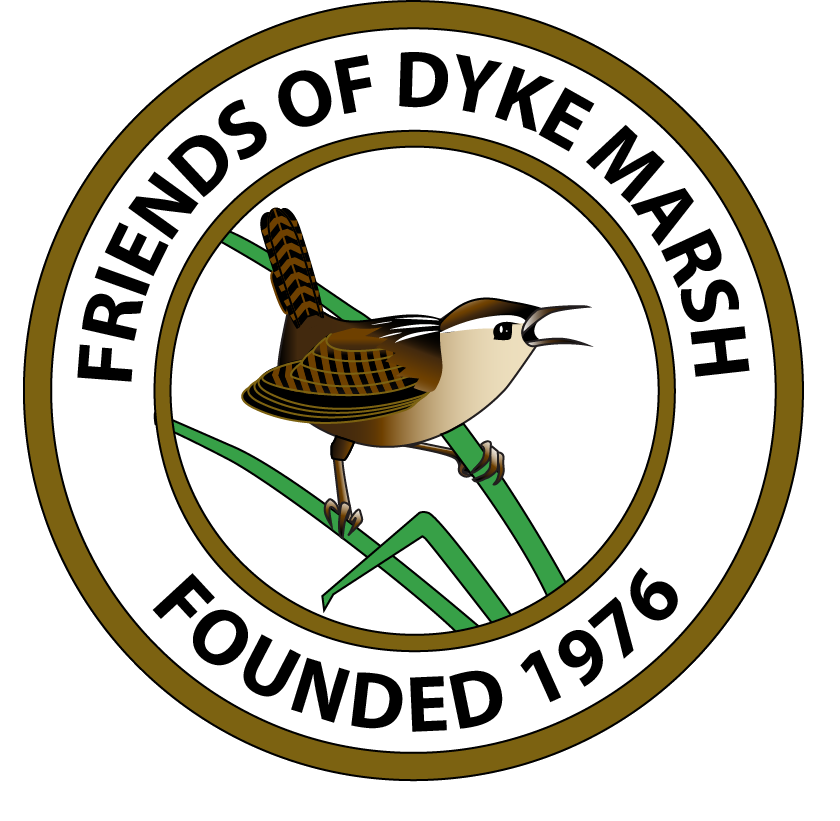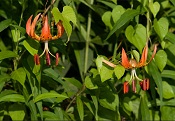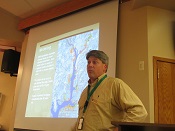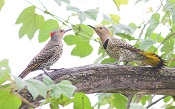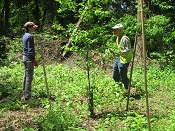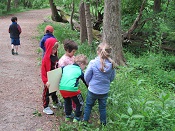In June 2019, FODMers observed pileated woodpeckers in Dyke Marsh feeding young, corroboration of successful nesting, and observers saw a male pileated feeding grubs to a fledgling male that appeared larger than his parent. After that, the young pileated moved and surveyed a branch in a cottonwood tree that had an abundance of carpenter ants. He feasted on his prey, using his long sticky tongue to access them.
News
On July 2, 2019, FODMer Ed Eder photographed Turk’s cap lilies (Lilium superbum) while canoeing in the southern big gut of Dyke Marsh. Ed commented that a few clusters remain, having “survived despite profound erosion. How long they will hang on is difficult to ascertain, but the Lilium superbum is a gem in any wetland and difficult to locate at all in Fairfax County.”
The rate of relative sea level rise along the tidal Potomac River is around 3.33 millimeters a year according to long-term water level data collected by the National Oceanic and Atmospheric Administration (NOAA), reported Geoffrey Sanders on May 15, 2019, to 65 people who attended FODM’s quarterly meeting. Sanders is the Network Program Manager for the National Park Service’s National Capital Region Inventory and Monitoring Network.
Ritual combat is often used among birds to settle disputes over territories or mate selection. Most of the time the postures assumed appear threatening but avoid serious contact or injury. Northern flickers (Colaptes auratus) are known for their elaborate ritual flights which involve tail flashing, bill pointing and circling as well as lunges and chase flights. Both sexes participate in ritual combat and the presence of an observer of the opposite sex intensifies the aggression, which may last for hours, with pauses.
On May 6, 2019, 10 FODMers worked hard to remove and control the aggressive plant, mile-a-minute (Persicaria perfoliata), in the native plant area along the Haul Road trail in Dyke Marsh. The plant, a pesky invasive, is forming mats that overwhelm valuable native plants. Mile-a-minute is also known as Asiatic tearthumb because it has prickly little thorns on the stems.
Thirty enthusiastic pre-school youngsters from two St. Luke’s Day School classes had their annual field trip to Dyke Marsh on April 29, 2019. Jennifer Gough, one of the teachers, reported, “We saw a snake, which the kids were thrilled about!” They were also excited to see the bald eagle in the nest along the Haul Road trail.
